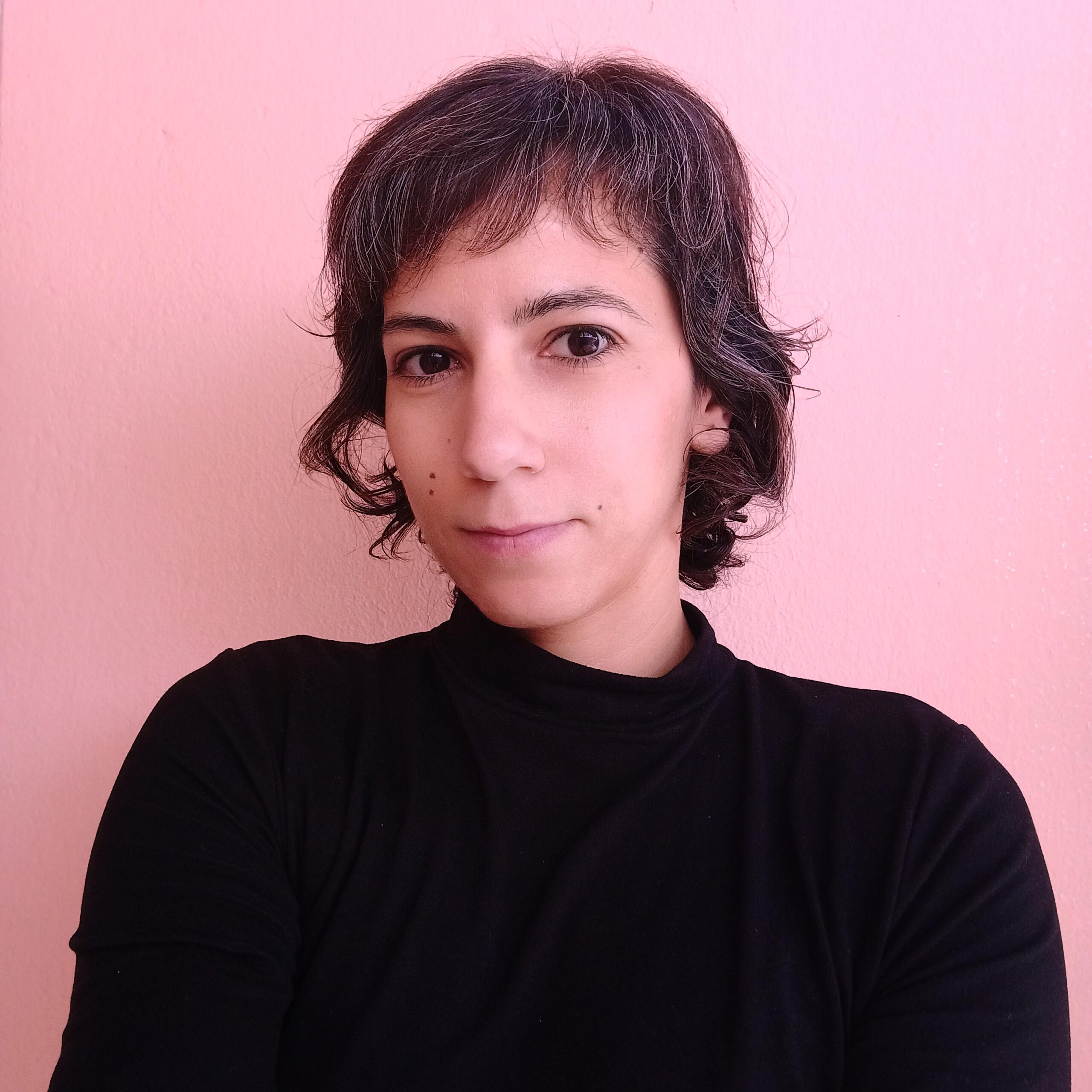7th ATHICFF – Young Reporters | Despoina Mauridou: “Despite the difficulties, the two sisters find refuge in each other’s arms”

Despina Mavridou, director of the film "Tsoukakia" talks about the wonderful relationship between the two sisters, which seems to be the real protagonist.
Interview by Young Reporters*
Despina Mavridou why did you choose the title “Tsoulakia” for your film?
The Young Reporters team of the Festival interviews the director of “Tsoulakia”.
-How challenging is it to shoot a film as a student, especially as a graduation project?
The film was indeed my thesis project at university. I collaborated with Kalliopi Arabatzi, who is known for writing beautiful scripts, and this particular story was one of them. The production came with significant challenges, primarily financial. While the university provided basic equipment, the overall cost exceeded what we had, so we had to secure additional resources. On top of that, we were working during the COVID lockdowns, which introduced many restrictions. I recall we had the final script ready and had completed the first stages of production, but when it was time to start shooting, we couldn’t proceed! Months went by when we couldn’t meet in person or rehearse properly. I even conducted the two main rehearsals with the actresses over Zoom.
-How did you cast your two lead actresses?
The two actresses, Elina Tsiombatzi and Eleni Georgaki, were students in the AUTH, in the theater department, which often collaborates with the film department. They participated in a casting session. Interestingly, Elina initially auditioned to play the younger sister. However, Kalliopi suggested trying her as Themis, the older sister, and it worked perfectly! That’s how Elina became the older sister, and Eleni played the younger one.
-In the film, the girls are exposed to nightlife, which feels unsettling at times. Was that intentional?
Yes, the nightlife scenes were an essential aspect of the girls’ story. It highlights their environment and underscores the significance of their relationship. Despite the challenges they face, their bond becomes a source of comfort. When the older sister has a breakdown—showing her vulnerability—the roles shift, and the younger sister steps in to support her. This dynamic was a key element in portraying their relationship.
-What role does the part of the narrative that has to do with the girls’ mother play in the film?
It has a double role for me. One is to narrate this beautiful scene of her parents meeting for the first time, how they fell in love because their parents are no longer alive, what’s left are these flashbacks. In fact, the younger sister holds on to those memories.
-We notice that the girls’ house is filled with “girly” things, is that important for the story?
The space should also speak for the characters, let alone the youngest sister who had the bigger personality and had the space literary choked with stickers! The softer lighting and lights were also meant to create an atmosphere, to feel home – like, to be atmospheric.
-Your sister wrote the music for the film! Crazy! What was that experience like since the film is also about two sisters?
Oh, how nice! I’ ve never been asked that question before! When I first read Calliope’s script I saw a lot of my own relationship with my sister in the text. I ‘m the youngest, six years apart from Evangeline, and even though I am not that intense as my heroine, I could understand this type of relationship very well. And that’s what connected me so much to this story. My sister is a musician and I’ m very happy to work with her, no one else could have done it like her.
-We notice that the girls’ house is full of “girly” things, is that important for the film?
The space should also speak for the characters, let alone the younger sister who had a big personality had the space choked with stickers! The softer lighting and lights were also meant to create an atmosphere, to seem home-like, to be atmospheric.
-Your sister was the composer of the music for the film! Crazy! What was that experience like since the movie is also about two sisters?
Oh, how nice! I’ve never been asked that question before! When I first read Calliope’s script I saw a lot of my own relationship with my sister. I’m the youngest, there’s a six-year difference between me and Evangelia, and even though I didn’t have that extravagance (of Mattie), I could understand that relationship very well. And that’s what connected me so much to this story. My sister is a musician and I’m very happy to work with her, no one else could have done it like this, at least in my opinion.
-Why did you give this title to the movie (“Sluts”), since the girls are not!
(Laughs) That was the title Calliope had given to her script from the beginning and we kept it. It’s the title that the younger sister would have given to the film she imagined and it’s something her character could have said. That’ s the reason why.
*Young Reporters is the journalistic team of our Festival, composed of young people aged 14-17 years old. The Young Reporters document what happens at the festival, interview creators, performers and professionals in the field, as well as the audience! They also report, write film reviews, everything! Join our team.